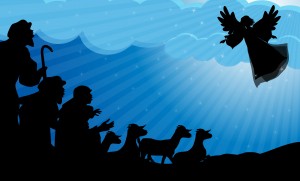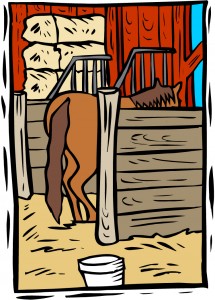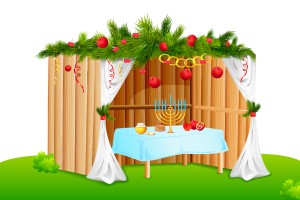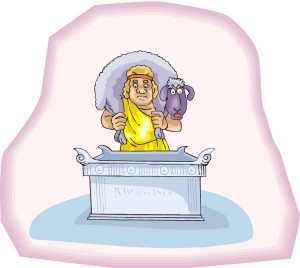Luke 11:33, No one when he has lit a lamp. As Jonah witnessed to Nineveh proclaiming the message of repentance (Luke 11:29–32), even so, Yeshua is teaching us that we must do the same to our generation.

Greedy dogs!
Furthermore, if when proclaiming the gospel message of repentance (turning from sin or Torahlessness and turning to Yeshua) our eye is evil—a Hebraism for greedy or covetous—then our whole message will be compromised or tainted. How is this? If we have been called to preach the good news or gospel of the kingdom of Elohim, and we’re in it to make money, then those hearing our message may view it as suspect because they see behind our preaching potential ulterior motives. Are we preaching the message out of pure altruism and seeking no financial gain or other personal benefit, or do we have a hidden agenda—namely, personal enrichment? If the latter, are people going to believe our message more or less? How is this going to reflect on the message itself—favorably or negatively? Is this going to help bring people into the kingdom of Elohm or keep them out of it?
Sadly, many in the church system have perfected the nefarious art of taking people’s money, while attempting to legitimize it scripturally. Some approaches are more blatant than others, but taking people’s money out of coercion has basically become part of the institution and culture of the church.
For example, you’ve all probably been in churches where the preacher disparages “the law of Moses that was against us. Thank God it was nailed to the cross and done away with,” they’ll opine, “and that Yeshua did it it all for us, so now we don’t have to.” And then they’ll continue, “And now Sister Malarkey will play a piece on the organ as we pass the plate to take up your tithes.” So what’s wrong with this picture? Can you see the logical disconnect here? Simply this. The tithing command is in the Torah-law the preacher just said was done away with! “Away with the Sabbath, the dietary laws, and those terrible Jewish feasts that YHVH hates, but don’t forget to drop your tithes in offering plate as it comes around!”
Not only this, but too many preachers have even learned how to con people into even feeling good about handing over their money to these greedy and misguided ministers. This is the evil eye or dark eye to which Yeshua was referring in this passage.
Because of this unbiblical approach that is rooted in greed and covetousness, many heathens not only want nothing to do with the church and Christians, but since we (i.e., the examples of our lives) may be the only Bible some people will ever read, many spiritually lost folks have rejected the gospel message itself along with the Bible and Yeshua altogether because of us.
People need to be able to give financially into ministries that preach the gospel and to help support those who are doing so, but out of freewill, love and from a willing heart, not due to mental and emotional manipulation by silver-tongued preachers with gold-filled pockets. Giving into YHVH’s ministers is just, righteous and biblically encouraged, but at the same time Yeshua’s disciples must preach the gospel whether they are remunerated for doing so or not. This is our reasonable service—something we owe to Yeshua our Master who bought and paid for our sins with his own blood.
So don’t pass the offering plate! Instead, leave it in the back of the room for those who want to give cheerfully from a willing heart, and not out of compulsion!









